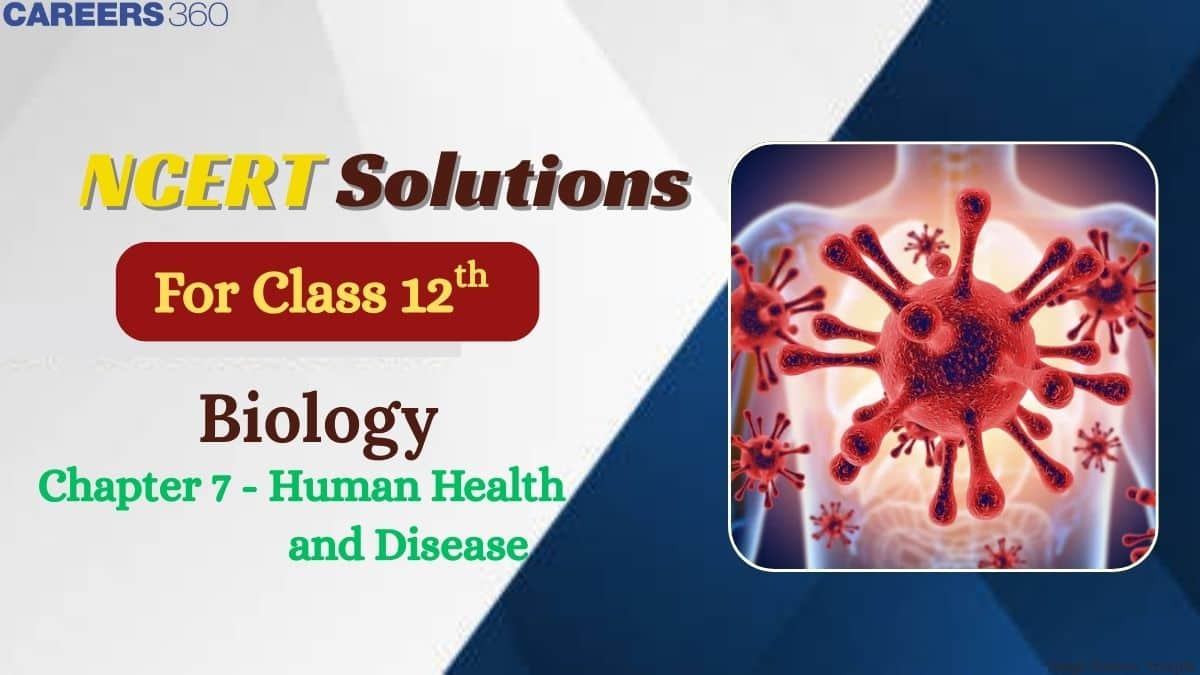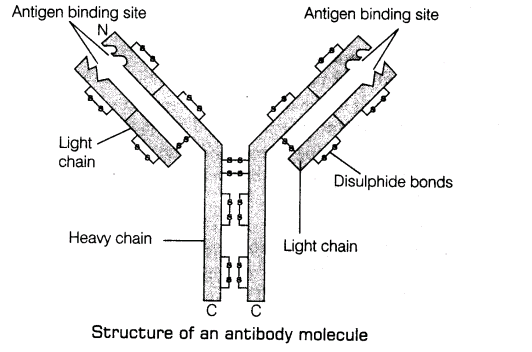Important Questions from Class 12 Biology Chapter 7 Human Health and Disease
The Human Health and Disease chapter helps students understand the causes of diseases and the importance of immunity. Given below are some of the important questions from this chapter. For more such questions, students can refer to the NCERT Solutions for Class 12 Biology Chapter 7 Human Health and Disease. This improves their problem-solving skills and makes them familiar with the question pattern.
Question 1: Haemozoin is a
A. precursor of haemoglobin
B. The toxin released from Streptococcus-infected cells
C. The toxin released from Plasmodium-infected cells
D. The toxin released from Haemophilus-infected cells
Answer: The correct answer is option (C), the toxin released from Plasmodium-infected cells
Explanation:
A dangerous byproduct generated by the parasite Plasmodium in malaria disease is haemozoin, which is a by-product of the ingestion of haemoglobin by the parasitic red cell.
Question 2: Which of the following is not the causal organism for ringworm?
A. Microsporum
B. Trichophyton
C. Epidermophyton
D. Microsporum
Answer: The correct answer is option (D), Microsporum
Explanation:
Ringworm, a common fungal infection of the skin, is caused by dermatophytes belonging to genera such as Trichophyton, Microsporum, and Epidermophyton. Non-dermatophyte organisms, like bacteria or viruses, are not responsible for causing ringworm. Ringworm infections typically affect the skin, hair, and nails, presenting as red, itchy, circular rashes.
Question 3: A person with sickle cell anaemia is
A. more prone to malaria
B. more prone to typhoid
C. less prone to malaria
D. is less prone to typhoid
Answer: The correct answer is option (C), less prone to malaria
Explanation:
Patients suffering from sickle cell anaemia demonstrate a distinct kind of immunity against malaria due to the abnormally shaped RBCs. Since the parasite will find less favour in sickle-shaped RBCs, severe infection would occur less often. This protection is confirmed through multiple clinical research works, mainly from malaria-prone areas where this sickle cell trait has occurred as an intrinsic mechanism for defending against malaria.
Question 4: Antibodies present in colostrum, which protect the newborn from certain diseases, are of
A. IgG type
B. IgA type
C. IgD type
D. IgE type
Answer: The correct answer is option (B), IgA type
Explanation:
The antibodies present in colostrum, the first milk produced by mammals after birth, are primarily of the IgA (Immunoglobulin A) class. Colostrum is rich in these antibodies, which play a critical role in protecting the newborn from infections.
Question 5: Which of the following is not a lymphoid tissue?
A. Spleen
B. Tonsils
C. Pancreas
D. Thymus
Answer: The correct answer is option (C), Pancreas
Explanation:
The pancreas is not a lymphoid tissue. The pancreas is an exocrine and endocrine organ mainly functioning in digestion and the regulation of blood sugar levels. The spleen, tonsils, and thymus are all regarded as lymphoid tissues that have a function in the immune system. The lymphoid organs are responsible for the production and maturation of lymphocytes. These are considered critical in the initiation of immune responses.
Question 6: Antivenom against snake poison contains:
A. Antigens
B. Antigen-antibody complexes
C. Antibodies
D. Enzymes
Answer: The correct answer is (C), Antibodies
Explanation:
Antivenom against snake venom contains antibodies that specifically target and neutralise the toxic components of the venom. These antibodies are typically immunoglobulins (IgG) that are produced in response to the venom of a particular snake species. The process of creating antivenom usually involves injecting a non-toxic amount of venom into an animal (often a horse, sheep, or rabbit), which stimulates the animal's immune system to produce antibodies against the venom. These antibodies are then harvested from the animal's blood, purified, and prepared for use in humans as antivenom.
Question 7: Smack' is a drug obtained from the:
A. latex of Papaver somniferum
B. leaves of Cannabis sativa
C. Flowers of Dhatura
D. fruits of Erythroxylum coca
Answer: The correct answer is (A), latex of Papaver somniferum
Explanation:
Heroin, commonly referred to as smack, is a chemically modified opioid known as diacetylmorphine, a white, odorless, and bitter crystalline substance. It is synthesised through the acetylation of morphine, which is extracted from the latex of the poppy plant, Papaver somniferum.
NCERT Exemplar Class 12 Solutions


